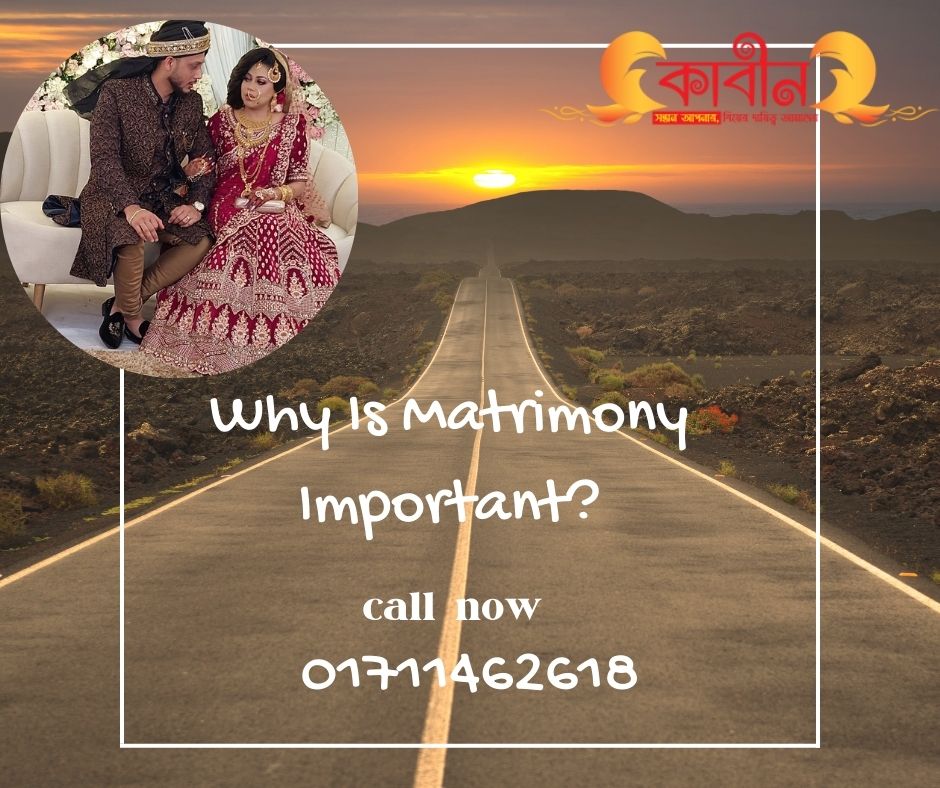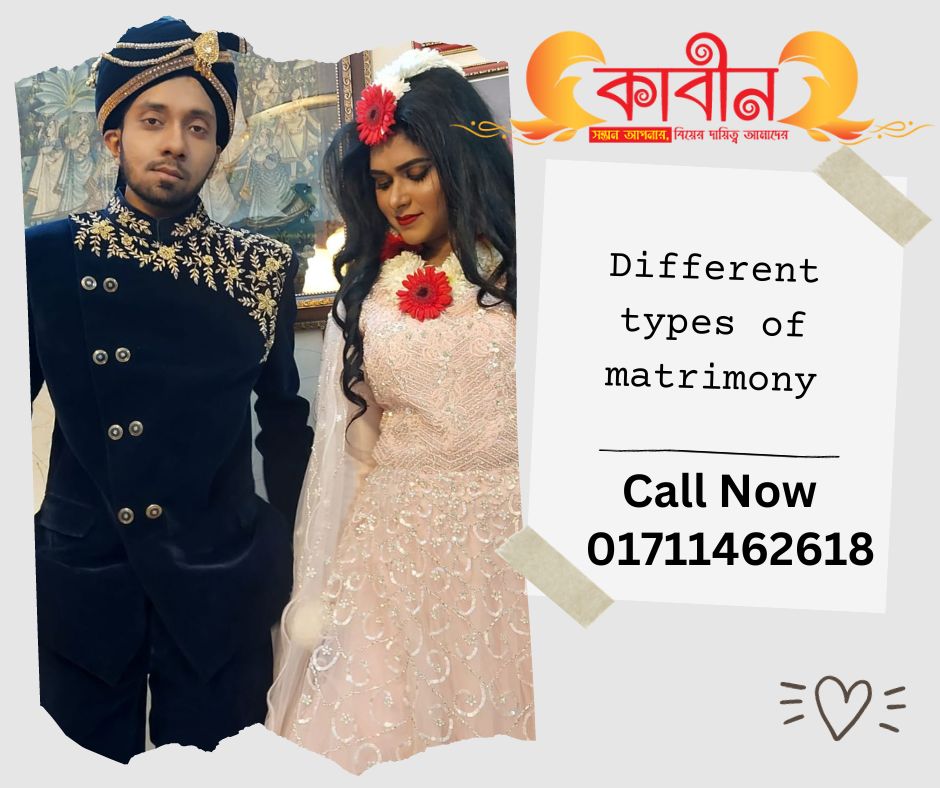Why Is Matrimony Important?

Introduction
Matrimony, or marriage, is a universal institution that holds immense significance in societies worldwide. It is a cultural, legal, and social contract that binds individuals, often for a lifetime, with mutual rights and responsibilities. The importance of matrimony can be seen from various perspectives, including personal, societal, and legal dimensions. This essay explores the reasons why matrimony is crucial in today’s world, delving into its role in providing stability, fostering companionship, legal implications, and its impact on children and society.
-
Emotional and Psychological Support
Marriage provides emotional and psychological support to individuals. Companionship is a fundamental human need, and matrimony offers a secure and stable environment for emotional growth and support. Life is replete with challenges, and having a life partner to share these challenges with can make them more manageable. A spouse often serves as a confidant, offering empathy, love, and understanding during difficult times. Marriage creates a unique bond that helps individuals navigate life’s ups and downs, promoting mental and emotional well-being.
-
Stability and Security
Matrimony contributes to personal and financial stability. In a marriage, individuals often share financial responsibilities, which can lead to a more secure financial future. The pooling of resources can result in a higher standard of living for the couple. Moreover, marriage often provides a stable environment for raising children. A two-parent household can offer children greater stability, emotional support, and opportunities for growth.
-
Legal and Economic Benefits
Marriage carries numerous legal and economic benefits. Married couples are often entitled to tax breaks and other financial incentives. Additionally, spouses can inherit property and assets without facing significant tax implications. Matrimony can also provide access to healthcare and social security benefits. In essence, marriage offers a legal framework that can be advantageous in terms of asset protection and financial planning.
-
Commitment and Responsibility
Matrimony is a powerful symbol of commitment and responsibility. When individuals decide to marry, they make a solemn promise to stand by each other through thick and thin. This commitment fosters a sense of responsibility towards one’s spouse, promoting mutual growth and well-being. Marriage encourages individuals to work together to overcome challenges and build a future together, reinforcing the values of trust and accountability.
-
Family and Social Support
Matrimony extends beyond the couple to create a network of family and social support. In most societies, marriage involves not just two individuals but also their families. These extended networks can provide crucial support in times of need. In times of joy or sorrow, the married couple can rely on their families for assistance, advice, and comfort. These bonds strengthen the social fabric and provide a sense of belonging.
-
Cultural and Religious Significance
Marriage often carries significant cultural and religious importance. It is a rite of passage that symbolizes the transition to adulthood and responsibility. In many cultures, weddings are celebrated with elaborate rituals and ceremonies that uphold traditions and values. For many, marriage is not just a legal contract but a sacred covenant. These cultural and religious aspects of matrimony play a vital role in preserving heritage and values.
-
Child-Rearing and Family Building
Matrimony plays a crucial role in child-rearing and family building. It provides a stable and nurturing environment for children to grow and thrive. Research indicates that children raised in two-parent households tend to have better emotional, social, and educational outcomes. Marriage also reinforces the concept of family, instilling values and responsibilities in children from an early age.
-
Economic and Societal Stability
Marriage contributes to economic and societal stability. In societies with a high rate of stable marriages, there is a lower likelihood of poverty, crime, and social unrest. Marriage promotes a sense of belonging and social cohesion, as individuals are more likely to invest in their communities and work towards collective well-being when they have a family to support.
-
Companionship in Old Age
In later stages of life, when individuals face challenges related to health and aging, marriage provides crucial companionship and support. Spouses can care for each other, offer emotional solace, and reduce feelings of loneliness and isolation. The bond formed over a lifetime of shared experiences can be a source of great comfort in old age.
-
Personal Growth and Fulfillment
Marriage has the potential to foster personal growth and fulfillment. The partnership encourages individuals to strive for self-improvement and to support each other’s dreams and aspirations. The mutual encouragement and emotional sustenance can lead to a more satisfying and fulfilled life.
Conclusion
Matrimony is a fundamental institution that plays a multifaceted role in contemporary society. It offers emotional and psychological support, financial stability, legal benefits, and social cohesion. It is a symbol of commitment and responsibility and is deeply intertwined with cultural and religious traditions. Moreover, marriage is instrumental in child-rearing and family building, contributing to economic and societal stability. As individuals navigate the complexities of life, the importance of matrimony becomes evident in its ability to provide companionship, support, and a sense of purpose. Marriage continues to be a bedrock of human society, offering a path to personal growth and fulfillment, and promoting the well-being of individuals, families, and communities alike.
Different types of matrimony.

Introduction
Matrimony, the institution of marriage, is a multifaceted concept that varies significantly across cultures, regions, and time periods. While the fundamental premise of matrimony remains consistent – the union of two individuals in a lifelong commitment – the forms, customs, and practices associated with it can be incredibly diverse. In this essay, we will delve into different types of matrimony, including traditional, modern, and alternative forms, highlighting the unique characteristics and cultural significance of each.
-
Traditional Matrimony
1.1 Arranged Marriage
Arranged marriages are a prevalent form of traditional matrimony, particularly in many Asian, Middle Eastern, and African societies. In arranged marriages, families or matchmakers play a significant role in selecting potential partners for the individuals involved. The focus is often on compatibility, social status, and family reputation rather than romantic love. These marriages rely on the belief that the families, with their experience and wisdom, can make suitable matches.
1.2 Religious Matrimony
Religion has a substantial influence on the way matrimony is conducted. Various religious traditions have specific customs and rituals related to marriage. For instance, Christian matrimony involves ceremonies in churches, Hindu matrimony has elaborate rituals like the Saptapadi, and Islamic matrimony adheres to the practices outlined in the Quran. These religious matrimony types have their unique ceremonies and rules that guide the union of two individuals.
1.3 Polygamous and Polyandrous Matrimony
Polygamous and polyandrous matrimony, although less common today, have been practiced in various cultures throughout history. In polygamous matrimony, a man may have multiple wives, while polyandrous matrimony involves a woman having multiple husbands. These forms of matrimony are often motivated by factors like economics, social status, and fertility, and they can have profound cultural significance.
-
Modern Matrimony
2.1 Love Marriage
In contrast to arranged marriages, love marriages are rooted in the individuals’ feelings of affection and attachment towards each other. Partners choose each other based on personal compatibility, shared values, and romantic love. Love marriages are common in many Western societies, and they emphasize the importance of personal choice and emotional connection.
2.2 Interfaith and Interracial Matrimony
With globalization and increased multiculturalism, interfaith and interracial marriages have become more prevalent. These unions involve individuals from different religious or racial backgrounds, and they often necessitate compromise, understanding, and respect for each other’s cultural and religious traditions. Interfaith and interracial matrimony challenge societal norms and promote cultural diversity and acceptance.
2.3 Same-Sex Matrimony
Same-sex matrimony, involving two individuals of the same gender, is a relatively recent development in many parts of the world. In recent years, numerous countries have legalized same-sex marriage, recognizing the rights of individuals to marry whomever they love, regardless of their gender. This form of matrimony has been a significant step toward achieving LGBTQ+ rights and equality.
2.4 Civil Matrimony
Civil matrimony, or civil marriage, is a legal union that is not necessarily tied to religious or cultural traditions. It is typically conducted in government offices or courtrooms and is legally recognized by the state. Civil matrimony is often preferred by couples who wish to separate the legal aspects of marriage from religious or cultural elements.
Civil matrimony refers to a legal marriage ceremony performed by a government official, rather than a religious leader. It’s important to distinguish it from common-law marriage, which isn’t recognized in all jurisdictions and requires specific criteria to be legally recognized as married.
Here’s a breakdown of civil matrimony:
Key Features:
- Performed by a government official: This could be a judge, magistrate, justice of the peace, or other authorized person.
- Non-religious ceremony: No religious content is included in the ceremony itself, although religious elements can be incorporated outside the official ceremony.
- Legally recognized: Once completed, the marriage is legally recognized by the state, granting the same rights and responsibilities as a religious marriage.
- Simpler and quicker: Compared to religious ceremonies, civil ceremonies tend to be shorter and more straightforward, focusing on the legal aspects of marriage.
Benefits:
- Accessibility: Open to all couples, regardless of religious beliefs or affiliation.
- Neutrality: Offers a secular option for couples who prefer a non-religious ceremony.
- Flexibility: More freedom to personalize the ceremony with your own vows and readings.
- Cost-effective: May be less expensive than a traditional religious wedding.
Things to Consider:
- Legal requirements: Each jurisdiction has its own requirements for obtaining a marriage license and completing the ceremony.
- Religious beliefs: Some couples may still choose to have a separate religious ceremony for their faith community.
- Venue limitations: Not all venues may be suitable for a civil ceremony, depending on local regulations.
Alternatives:
- Religious ceremony: Performed by a religious leader according to specific religious traditions.
- Common-law marriage: Not recognized everywhere, requires specific criteria to be considered legally married.
- Domestic partnerships/civil unions: Offer some legal protections similar to marriage, but not always equivalent.
Ultimately, the choice between a civil ceremony and another option depends on your individual preferences and circumstances. If you’re considering a civil matrimony, research the legal requirements in your area and consult with an official authorized to perform such ceremonies.
-
Alternative Forms of Matrimony
3.1 Group Matrimony
Group matrimony, also known as polyamorous or polyamory relationships, involves multiple individuals in a consensual, romantic relationship. While not legally recognized as matrimony in many places, these arrangements are characterized by open communication, respect, and the understanding that love and commitment are not limited to a single partner. Group matrimony challenges societal norms regarding monogamy and exclusivity.
3.2 Common-Law Matrimony
Common-law matrimony, also known as de facto marriage, is a type of informal matrimony where couples live together as spouses without a formal legal ceremony. In some jurisdictions, common-law marriages are recognized, granting the same legal rights and responsibilities as traditional marriages. These relationships often require a minimum cohabitation period for recognition.
Common-Law Marriage: What You Need to Know
Common-law marriage, also known as non-ceremonial marriage or marriage by habit and repute, is a legal marriage formed without a formal ceremony or marriage license. However, it’s important to understand that common-law marriage is not recognized in all jurisdictions. Here’s a breakdown:
Where is it recognized?
- Currently, only 13 states in the US recognize common-law marriage: Colorado, Rhode Island, Kansas, Montana, Oklahoma, Texas, Utah, Alabama, Georgia, Iowa, South Carolina, North Carolina, and DC.
- Some Canadian provinces and territories also recognize it with specific requirements.
What are the requirements?
- Cohabitation: Living together as a couple for a sustained period, which varies by jurisdiction.
- Mutual intent to be married: Both parties must clearly intend to be married, not just cohabiting.
- Holding out as married: Publicly presenting yourselves as husband and wife to friends, family, and community.
Important points to remember:
- Proof of common-law marriage can be difficult: Establishing cohabitation, intent, and public presentation can be challenging without formal documentation.
- Rights and responsibilities: If recognized, common-law marriages typically have the same legal rights and responsibilities as formal marriages, including property division, inheritance, and spousal support.
- Dissolution: It can also be dissolved through divorce proceedings.
Before relying on common-law marriage:
- Always check the laws in your specific jurisdiction.
- Consult with an attorney to understand the requirements and potential risks.
- Consider a formal marriage ceremony and license to avoid future complications regarding legal recognition and proof of marriage.
Alternatives to common-law marriage:
- Formal marriage: Provides clear legal recognition and simplifies future legal processes.
- Domestic partnerships/Civil unions: Available in some jurisdictions, offering some legal protections similar to marriage.
Remember, common-law marriage can be a complex issue depending on your location. Always research and understand the laws and implications before relying on it as your marital status.
3.3 Temporary or Contractual Matrimony
In some cultures, temporary or contractual matrimony exists. These unions have a predetermined duration, and the partners may agree to the terms and conditions of their matrimony, which could include financial arrangements, duration, and other aspects. Temporary matrimony is often practiced for specific reasons, such as fulfilling religious obligations or addressing short-term needs.
-
The Influence of Culture and Society
The diversity in matrimony types is influenced by cultural norms, societal values, historical traditions, and legal systems. Different societies have evolved their own customs and expectations regarding matrimony, reflecting their unique worldviews and priorities. While traditional matrimony remains significant in some regions, modern and alternative forms have gained prominence due to changing social dynamics and individual freedoms.
Conclusion
Matrimony is a dynamic institution with various forms that reflect the rich tapestry of human relationships. Traditional matrimony, with its arranged and religious aspects, coexists with modern forms like love, interfaith, interracial, and same-sex matrimony. Alternative matrimony types challenge conventional norms and highlight the evolving nature of human relationships. The diversity of matrimony types reminds us that love and commitment can take many different shapes, and the recognition of this diversity is essential for promoting inclusivity and respecting individual choices in today’s globalized and interconnected world.
“বিয়ে সংক্রান্ত যেকোনো তথ্য ,সেবা এবং পরামর্শ পেতে যোগাযোগ করুন কাবীন বিডির সাথে । ” কল করুন:01711462618
























